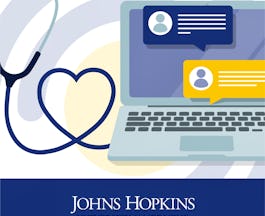To work in the field of Geriatrics, you should consider learning the following skills:
Age-related health conditions: Gain knowledge about common health conditions and diseases affecting older adults, such as dementia, arthritis, cardiovascular diseases, and diabetes. Understanding the symptoms, prevention, and management of these conditions is crucial.
Geriatric assessment: Learn how to conduct comprehensive assessments that evaluate the physical, mental, and social well-being of older individuals. This includes understanding the different assessment tools used, such as the Mini-Mental State Examination (MMSE) for cognitive evaluation.
Pharmacology in geriatrics: Acquire knowledge of medications commonly prescribed to older adults and their potential interactions and side effects. Understanding the challenges of medication management in the geriatric population is essential.
Multidisciplinary care: Develop skills to collaborate effectively with other healthcare professionals involved in geriatric care, such as social workers, occupational therapists, and physiotherapists. Learn how to build an interdisciplinary care plan for older adults to address their specific needs.
Communication and empathy: Develop strong communication skills to effectively listen and communicate with older adults, their families, and caregivers. Empathy is key to understanding and addressing the emotional and psychological aspects of aging.
Palliative and end-of-life care: Gain knowledge of providing comprehensive care for older adults nearing the end of their lives. Learn about pain management, symptom relief, and psychosocial support to ensure a dignified and comfortable end-of-life experience.
- Aging-related policy and ethics: Understand the policies, regulations, and ethical considerations relevant to providing care for older adults. Stay updated on current legislation and policies impacting geriatric healthcare.
Remember, this list provides a starting point for skills to learn in the field of Geriatrics. As the field evolves, it's essential to stay updated with the latest advancements, research, and best practices to provide the highest quality care for older adults.

 Status: Free
Status: Free











